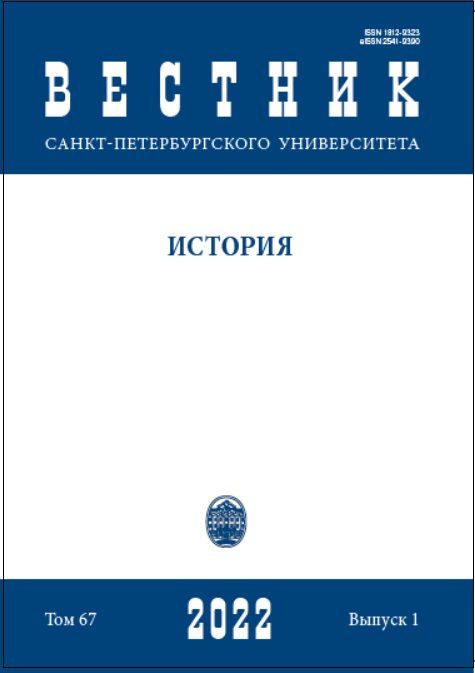Lysias’s speech On the Refusal of a Pension and Athenian citizens with disabilities
DOI:
https://doi.org/10.21638/11701/spbu02.2022.107Abstract
The article examines speech XXIV by Athenian orator Lysias “On the Refusal of a Pension” (V – IV c BCE.) This text provides not only an excellent example of a legal speech written by a renowned Attic orator but also invaluable material for the study of social policy of Athenian democracy, namely – adaptation and survival of people with disabilities in the ancient Greek polis. The author of the article agrees with those researchers who have no doubts concerning the authorship of the speech and its intention to be delivered during the litigation on dokimasia of “infirm” people in the Council 500. The article considers the information about the disabled people in Athens and the allowance granted to them, and analyses topoi frequently used by litigants in legal speeches. Similarly to other Athenian trials, the outcome of this is not known, nor is the fate of the disabled person and whether he managed to assert his position. The analysis of the strategies of litigants indicates that appealing to pathos, enhancing the image of a good citizen, and discrediting the opponent in combination with irony, humor, and dramatization of the trial, to a certain extent, often made an impact on judges and resulted in a favorable decision The whole repertoire of these tactics was effectively utilized by the orator in speech XXIV, therefore is reasonable to suggest that the success was almost guaranteed. It is also noteworthy that the Athenian law that granted the allowance to adynatoi was unique for the Ancient Greece and, in all probability, was connected with the development of Athenian democracy.
Keywords:
Ancient Greece, Athenian democracy, trial, Lysias, disabled people, allowance
Downloads
References
Downloads
Published
How to Cite
Issue
Section
License
Articles of "Vestnik of Saint Petersburg University. History" are open access distributed under the terms of the License Agreement with Saint Petersburg State University, which permits to the authors unrestricted distribution and self-archiving free of charge.





